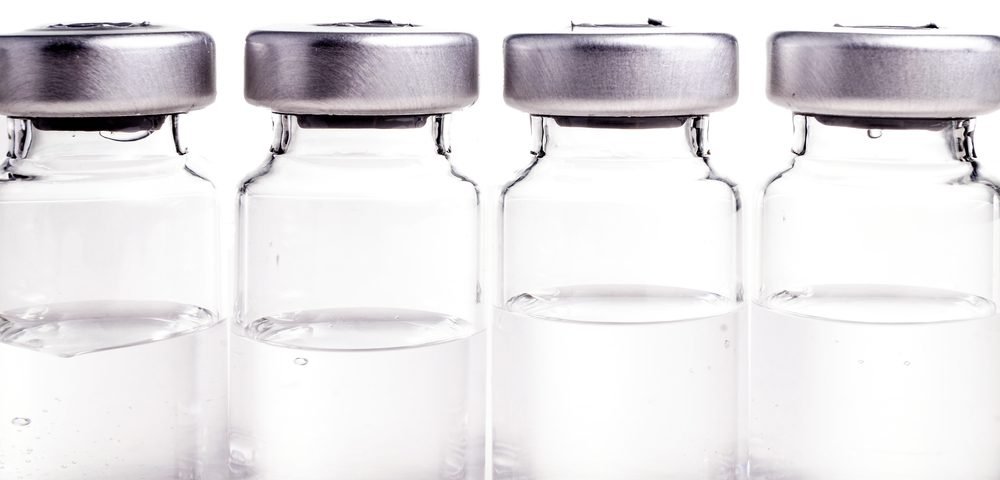Agenus has dosed the first patient in a Phase 1 trial evaluating the cancer vaccine AutoSynVax (ASV) for advanced cancer.
Preclinical-trial data, presented at the American Association for Cancer Research (AACR) 2017 Annual Meeting, has indicated that ASV controls tumor growth and produces lasting immune memory in mouse models of cancer. It also seems to work in tandem with Agenus’ investigational immune checkpoint inhibitors AGEN2034 and AGEN1884. AGEN2034 targets the PD-1 protein, and AGEN1884 the CTLA-4 protein.
AutoSynVax is a vaccine designed and manufactured for each patient, based on their tumor profile.
Usually, cancers with many mutations trigger stronger immune responses. Mutations often modify a protein’s structure. The immune system recognizes it as abnormal and attacks cells expressing the mutated protein. But even cancer cells with many mutations sometimes trigger little immune response.
ASV is designed to generate strong immune responses against cancer proteins. Using complex bioinformatic algorithms, each patient’s genome is analyzed to detect the mutated proteins the immune system is most likely to attack. Putting pieces of these proteins in the vaccine will trigger the activation of T-cells specific to the tumor proteins.
The open-label, single-arm Phase 1 trial (NCT02992977) that Agenus is planning will evaluate the safety, feasibility, and tolerability of a combination of ASV and QS-21 Stimulon in patients with advanced cancer who have a life expectancy of six months or more.
QS-21 Stimulon is an adjuvant therapy — or one designed to enhance the way a cancer vaccine works. It strengthens and broadens immune responses to specific targets.
Agenus said QS-21, which has been used in more than 120 clinical trials, generates powerful immune responses and has a favorable safety profile. It is a saponin, a plant-derived product that the company has purified with a proprietary process.
The trial will enroll between six and 20 patients. They will receive AutoSynVax twice a week and QS-21 Stimulon for up to a year. The primary goals of the study are to assess AutoSynVax’s safety and establish a recommended Phase 2 dose.
Researchers will also be looking at the number of patients who respond to the therapy, how long it takes for patients’ disease to progress, and the number of patients who are still alive after a year of treatment.
“AutoSynVax is one of three vaccine platforms proprietary to Agenus that have the potential to expand cancer patient populations that benefit from immunotherapy,” Dr. John Castle, PhD, senior director of computational biology and genomics at Agenus, said in a press release. “Our innovative algorithms, clinically validated HSP-based antigenic peptide delivery system QS-21 Stimulon, and a portfolio of checkpoint antibodies place us in a uniquely advantageous position to potentially treat patients with advanced malignancies.”


